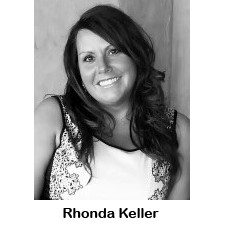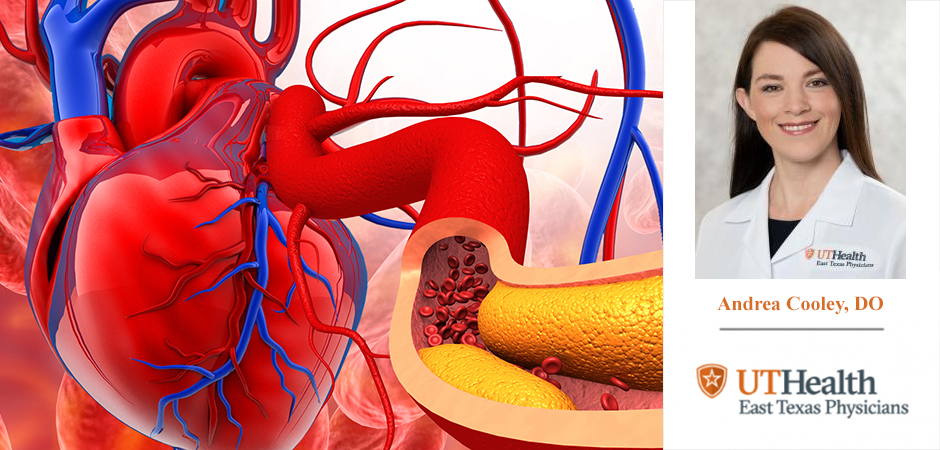As the practice administrator for nine different rural health clinics in east Texas, Rhonda Keller regularly drives hundreds of miles to check-in with the doctors, nurses and staff who operate the clinics.
She talks to them about the patients they see, the care they provide and how more serious cases have to be transferred to UT Health Tyler.
So when Rhonda started having symptoms of extreme fatigue, she didn’t realize she would soon become one of those transferred patients to UT Health Tyler.
“I just thought it was all stress related, caused by work and everything going on in my life,” said Rhonda, a 50-year-old resident of Dike. “Then I started having shortness of breath and spells of high blood pressure that gave me headaches. That’s when I decided to see my doctor.”

Medications and Examinations
Rhonda’s provider, Krystal Miller, APRN, FNP-BC, put her on a low dose of anti-anxiety medication to decrease her symptoms. She also ordered a cardiac workup because Rhonda’s parents have a history of heart issues. Rhonda’s father once had a mild heart attack with no other issues. His condition has been managed by medications.
When her mother was 50, the same age as Rhonda, she had stents placed in her arteries to help with blood flow. Due to continued blockage, Rhonda’s mother had triple bypass surgery at UT Health Tyler in 2020.
Given this family history, Rhonda’s physician ordered an EKG and an echocardiogram, both of which appeared to be normal. She also had a stress test, which turned out to be slightly abnormal.
To make sure there were no issues, her doctor referred her to Dr. Ajay Pachika, an interventional cardiologist with the UT Health East Texas Heart & Vascular Institute who performed a cardiac catheterization. During this procedure, Dr. Pachika guided a thin, flexible tube (catheter) through a blood vessel to Rhonda’s heart to check for blockages.
Rhonda went into the procedure knowing that if they saw a 70% blockage or less in one of the arteries, she would probably be put on blood thinning medications without needing surgery.
Diagnosis and Procedures
After the procedure, they rolled Rhonda back into the recovery room where she saw her nurse and sister-in-law sitting there. “Well,” Rhonda said, “I guess it’s going to be medications.” They looked at her funny and said, “No, dear, you’re going to have open heart surgery.”
Rhonda was diagnosed with multiple blockages in each artery; some had blockages stopping 99% of the blood flow. Within a few days, she underwent a quadruple bypass by cardiothoracic surgeon Dr. Andrea Cooley. Rhonda’s case was so unique that it was even highlighted at of the American Heart Association’s Go Red for Women luncheon where Dr. Cooley was honored.
During the surgery, four portions of an artery are taken from another part of her body to replace the four clogged vessels connected to the heart. This relatively common surgery immediately helps blood flow in and out of the heart more easily.
After two days in the Cardiovascular Intensive Care Unit (CVICU) to monitor the results, Rhonda was released a few days later to go home.
Home Health and Rehabilitation
“They sent me home with a packet of information about my medications, instructions on when to take them and a schedule of my upcoming doctor visits,” said Rhonda. “I also received great information about the home health visits and my rehabilitation program.”
These days, Rhonda feels much better. “I don’t have shortness of breath anymore. No headaches, no increased blood pressure or any of that. As time goes on, the better I feel.”
Through it all, Rhonda has high praise for all her doctors and staff.
“Dr. Cooley and her nurse practitioner are so personable,” she said. “They made me feel at ease, as much as you can possibly feel, before open heart surgery. They are just so down to earth and really made me feel comfortable.”
Rhonda spent the two months after the surgery away from work, even spending some time on the Gulf in Galveston. She also enjoys going to the pool and area lakes on the weekends.
More importantly, she is learning how to balance her health and personal life with her work life.
“It used to be all about work,” Rhonda said. “I would work pretty late at the clinics and then go home to work even more, often on the weekends,” she said. “Now, I leave work before 6 and do little of this work at home. I just remind myself, ‘I can handle that tomorrow.’”
For more information on the cardiac tests and procedures listed above, visit our Cardiac Services web page or call (903) 596-DOCS.

